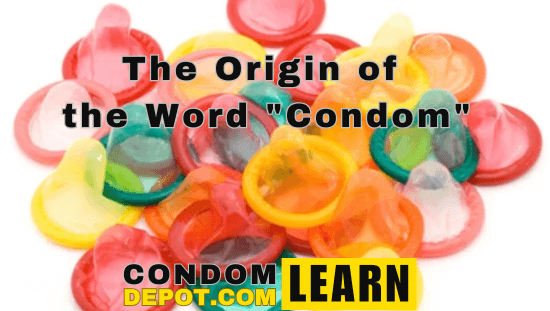Learn

The Complete Guide To Condom Materials
If you think regular old rubbers are the only way to go, you might be a little late-x to the condom game. We’ve already covered what to do if you have a latex allergy, so here’s a quick rundown of different condom materials and how to pick which one is best for you.
Latex
The vast majority of condoms on the market today are made of latex. Latex can stretch up to 800% its size, which makes it perfect for the heat and friction of sex. Recently, there have been many attempts to remove the proteins that cause latex allergies from the material, but they have only been 90% successful. As we have mentioned many times, it is never safe to use oil-based lubricants with latex condoms. Stick to water or silicone-based lubes. Our most loved, re-ordered latex condoms are Skinless Skin from Crown.
Polyurethane
Polyurethane condoms are probably the most popular alternative to latex. Made out of a type of plastic, they conduct heat better than latex and are also thinner, which many men find to be more pleasurable. Some female condoms are also made of polyurethane. Folks who prefer polyurethane condoms all seem to agree on Trojan’s BareSkin Non-Latex Supra.
Polyisoprene
Polyisoprene is an another alternative for those who have a latex allergy. While polyisoprene is chemically very similar to latex, it doesn't contain the proteins that cause allergic reactions. They tend to run a little cheaper than polyurethane, but they are a little thicker than polyurethane. Most people can’t even notice because polyisoprene condoms are also softer, stretchier, and feel less like rubber and more like natural materials. Lifestyles Condoms produces a wonderful, completely latex-free polyisoprene condom called SKYN.
Lambskin
Up until recently, lambskin condoms have been the only alternative for those with a latex allergy. They aren’t actually made of lambskin, but a layer of membrane from inside of a sheep’s intestines called the cecum. People have been using animal gut like cecum to make condoms for hundreds of years because it’s very durable, thin, and they conduct heat really well. However lambskin condoms DO NOT protect against STDs/STIs like herpes or HIV, so if that is a concern, you may want to switch to either polyisoprene or polyurethane. We’ve already reported on how lambskin condoms are fully biodegradable. Trojan makes a great lambskin condom that many people swear by called Trojan Natural Lamb.
Nitrile
The newest generation of female condoms are made of a type of rubber called nitrile. Nitrile is also seen in disposable rubber gloves for those with a latex allergy, so they are a great option for those who have one. Because they’re made of nitrile, female condoms are oil-resistant, meaning that they can handle oil-based lube like vaseline or baby oil without breaking down. Be careful when using these however; some are not meant for internal usage and should only be used on the inside of the condom.
Silicone
Silicone is thicker than latex, stronger, and holds a better form than latex or any other current condom material. But just because it’s thicker doesn’t mean it will buffer sensation. These condoms are designed to provide stimulation from the inside instead of from the outside in, pleasing both parties. As of right now, there are no silicone condoms on the market, but these silicone origami condoms are due to be released soon.
Not enough options? You’re in luck. The Bill and Melinda Gates Foundation has put forward a reward for reinventing the condom, and folks from all over the world have come up with designs that incorporate all kinds of new materials.










